How to Deal with Pantry Pests Tomlinson Bomberger
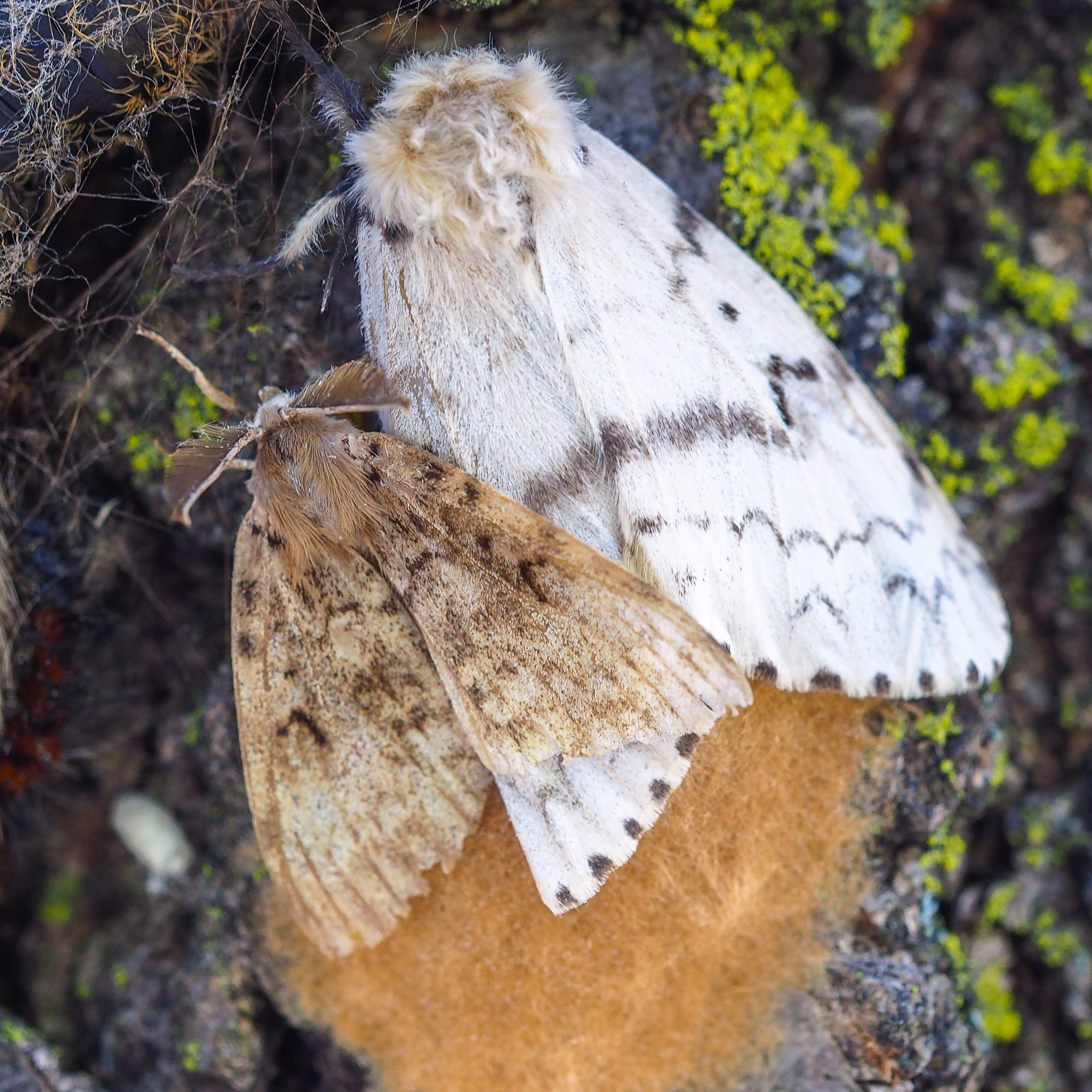
LDD Moth (European Gypsy Moth) City of Toronto
The Mediterranean pantry moth ( Ephestia kuehniella ), also known as a flour moth, is slightly larger in size (around 10-12mm long), and behaves much like the Indian meal moth. The adult moth has salt-and-pepper colouring that is broken up by a dark zigzag pattern. Legs and antennae are dirty white. The easiest way to identify the Mediterranean.

How to Get Rid of Pantry Moths & More Canberra Pest Control
Pests are cold-blooded, and you can use high or low temperatures to control pantry moth infestation. Temperatures of about 80°F are the most favorable for pantry pests. Temperatures above 95°F or below 60°F significantly reduce the reproduction and survival of the pest.

Getting Rid of Pantry Moths ThriftyFun
Pantry bugs are tiny insects like beetles, weevils, moths, ants, and worms that can infest foodstuffs. These little pantry bugs live in flour, dried grains, cereal products, pasta, rice, spices, crackers, and powdered foods. Unfortunately, identifying and getting rid of pantry bugs is challenging. The little creepy crawlies are hard to spot.
/moth-in-semolina---lebensmittelmotte-auf-grie--157525074-d2f49c82ecc54ce38d5078711acabccb.jpg)
How to Get Rid of Pantry Moths
Bay Leaf Moth Repellent. Whole bay leaves. Tape. tb1234. After cleaning the entire pantry with soapy water, place bay leaves in the corners of each pantry shelf or cupboard. Use tape to stick the leaves on the underside of the shelves and around the entrance to the pantry.

How to Deal with Pantry Pests Tomlinson Bomberger
The pantry moth or Indianmeal moth is a part of the Pyralidae family, present in the tropical regions of every continent barring Antarctica. Quite the opposite of what its name suggests, these moths are not endemic to India. Because of their food sources and appearances, they are often confused with certain species like the raisin moth ( Cadra.

Pantry Moth (Indian Meal Moth) Identification, Life Cycle, Facts
The Life Cycle of a Pantry Moth. An adult pantry moth can lay around 400 eggs, and those eggs can hatch within a week. This depends largely on temperature. The warmest months of the year are most dangerous for moth infestation, because eggs hatch faster, and the larvae grow rapidly. Once the eggs have hatched, the pantry moth larvae will eat.
/pantrymothsantagainGettyImages-172978120-5787bef05f9b5831b50e1c69.jpg)
How to Get Rid of Pantry Moths
Inspect your pantry and toss out any infested food. The National Pest Control Center advises that the items most at risk of infestation include cereal, grains, beans, nuts, flour, dried fruit, birdseed, animal food, spices, tea, chocolate, and candy. Clean out food storage containers with hot water and soap, and vacuum or scrub your cupboards.

Pantry Moths vs. Clothes Moths The Differences That Matter
Pantry Moths. Telltale signs of pantry moth infestations include webbing along the corners of packages or on the product inside, flour or cereal products with an unpleasant odor, or sticky secretions that cause grains to clump together. The presence of small caterpillars or adult moths in or near the pantry is a sure sign of infestation.
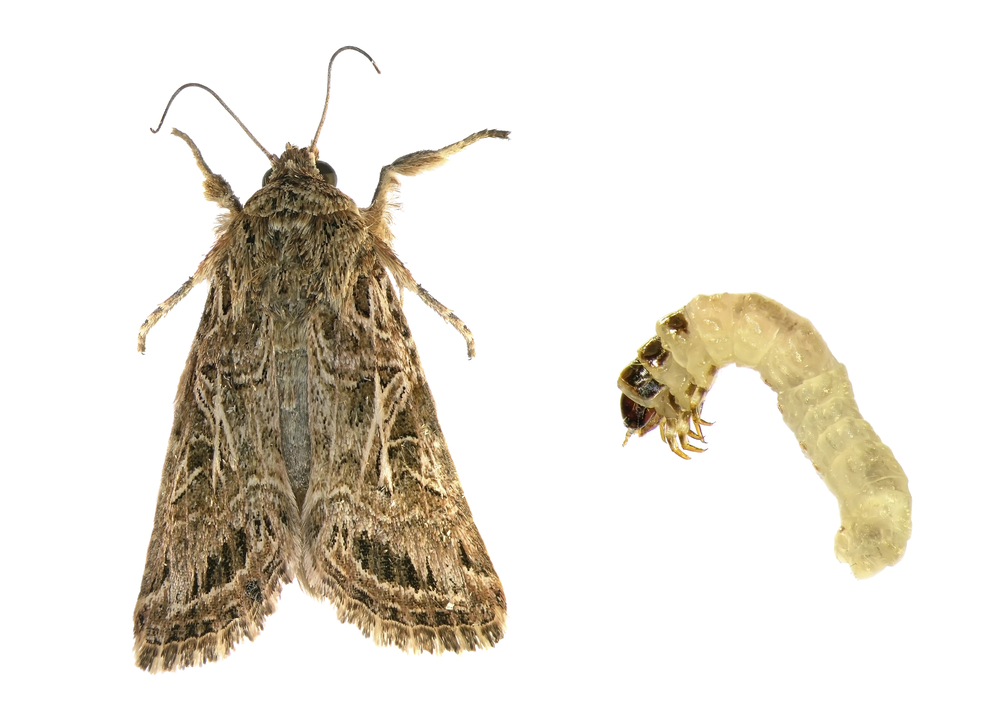
Casemaking Clothes Moth P.E.I. Pest Control
Pantry Moths. Pantry moths lay their eggs on stored food and grains. Finding an adult moth may be a sign that there are infested items somewhere in the home. Adult females can lay hundreds of eggs directly on or near potential food sources, and the damage is done by the larvae (tiny caterpillars). Larvae can chew through plastic bags and thin.

How To Get Rid Of Pantry Moths Naturally 10 Steps To Pantry Moth Con
P. interpunctella pantry moths are tiny (1/4 to 3/8 inch long) with a 1/2 to 3/4 inch wingspan. They have reddish-brown, coppery wings on the outer two-thirds of their wingspan and gray on the inner third. P. interpunctella goes by several common names, including pantry moth, Indianmeal moth, flour moth, grain moth, and weevil moth.
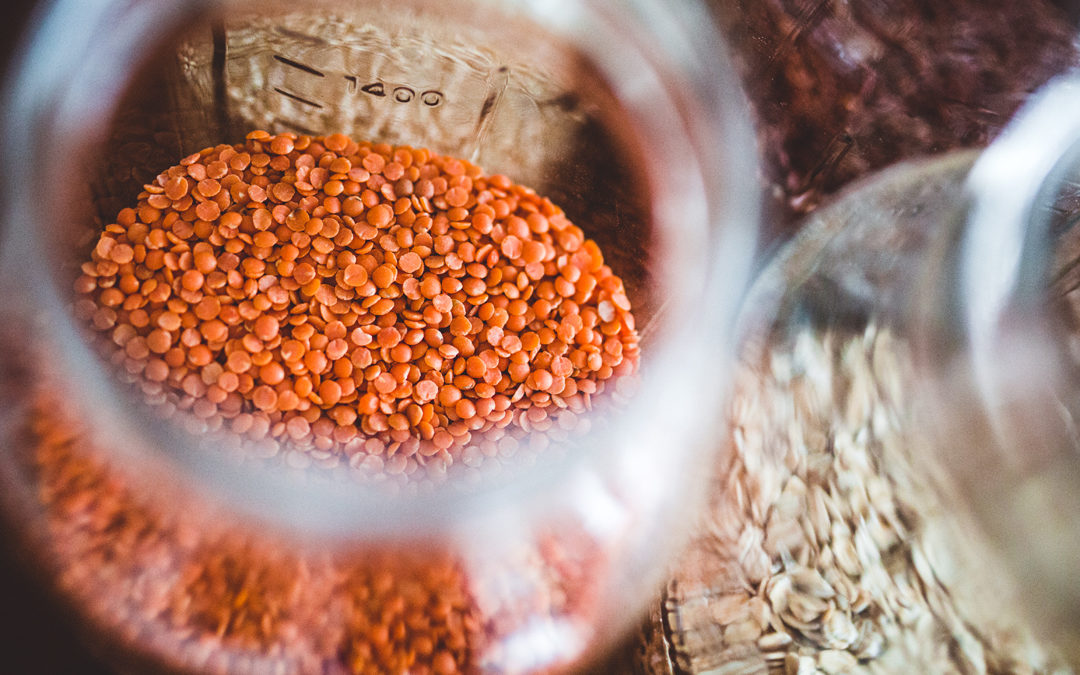
How to prevent a pantry moth infestation Vegan Family Kitchen
Add a few bay leaves to each container of stored seeds, flour, grains, or dried fruit. Also, if you have one, your cookie jar. Sprinkle diatomaceous earth around the edges and in the corners of your pantry shelves. Look way beyond your pantry for moths, webs and/or larvae, e.g., around your ceilings and the walls of your food-storage spaces.

How To Get Rid Of Pantry Moths and Keep Them Out of Your Home
The pantry is no place for pernicious pests - here is how to clear them out. 1. Inspect your dried food packages and throw out infested foods. 2. Vacuum your pantry to remove crumbs and debris. 3. Clean shelving and doors with warm, soapy water. 4. Consider a moth trap to catch any remaining pests.
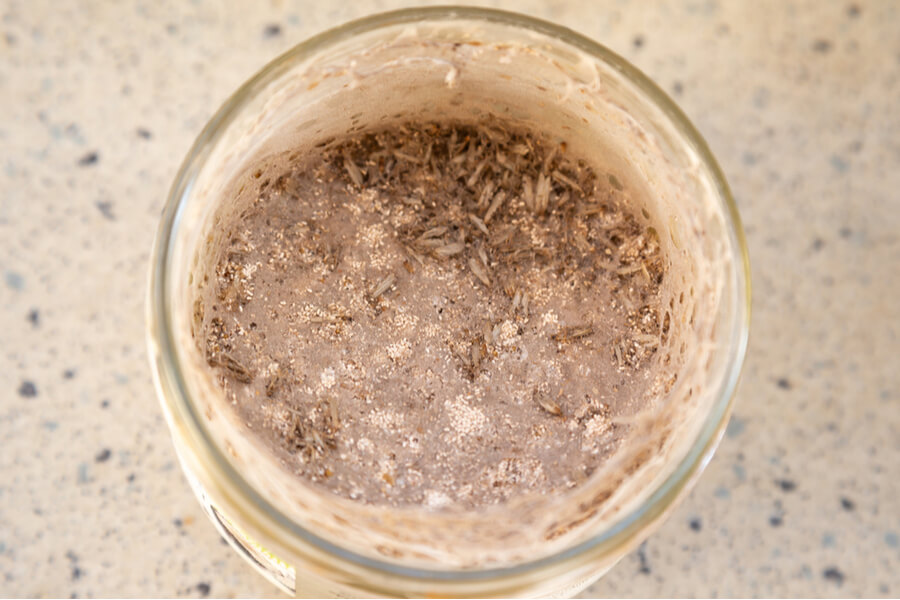
Pantry Moth Problems and Solutions Varment Guard Wildlife Services
The pantry moth larvae then eat whatever food is surrounding them. When moths grow into adult moths, the females will lay up to 500 eggs during their lifespan.Because of this, Pantry Moth infestation can be a nightmare. Not only that, but those eggs and larvae can contaminate large portions of food.

How to Get Rid of Pantry Moths Natural
Like other moths, pantry moths have four distinct life stages: egg, caterpillar, pupae and adult. The first sign of a pantry moth infestation is often the sight of adult moths flying in an erratic.
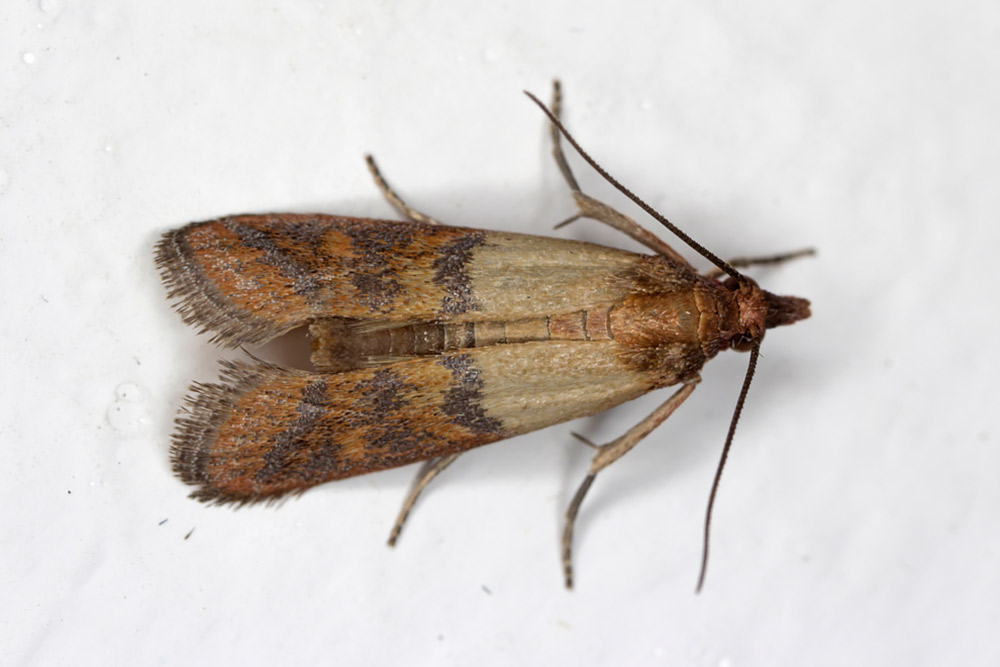
Pantry Moths How To Get Rid Of Pantry Moths Pestworks
Clothes moths are 1/2-inch long and are a beige, gray color. Their wings are narrow and hairy. Since they're so small and avoid light, you're not as likely to notice a clothes moth. Pantry moths are 1/3 to 1/5vinches long and have narrow wings that are gray and bronze on the bottom half and yellow-gray on the top.
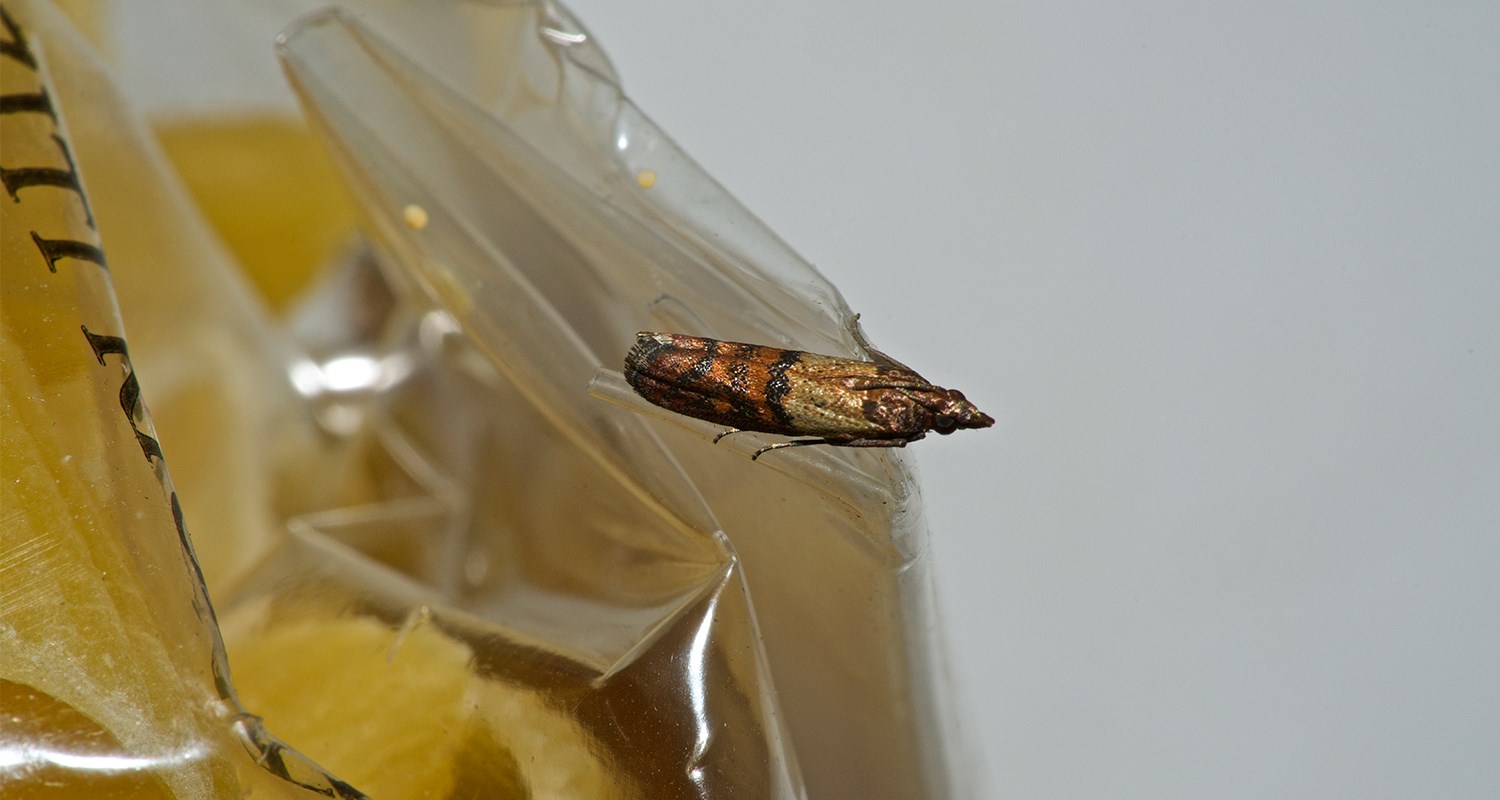
Pantry Moths How to Get Rid of Them Forever WHO Magazine
The Indianmeal moth species Plodia interpunctella is the most common pantry moth. These moths are as small as a grain of cooked rice , about 12 to 13 millimeters long. They have brown wings with a.